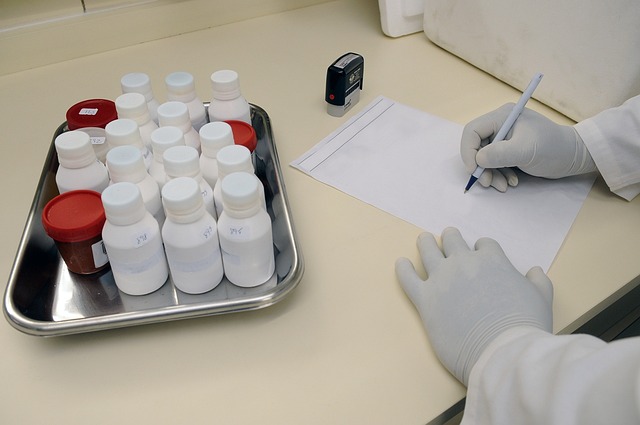Translation services for UK Public Health Reports are essential for overcoming language barriers and ensuring that critical health information is accurately and effectively communicated to diverse linguistic communities within the UK. These services bridge gaps between different languages and cultures, making it possible for healthcare professionals, policymakers, and the general public to access and understand important health data, risk assessments, and preventive measures. The process involves specialized translators with expertise in both language and medical contexts, leveraging advanced translation technologies to maintain precision while adapting messages for cultural relevance. This ensures that UK public health communications are clear, actionable, and informative, which is crucial for informed decision-making and the successful implementation of public health measures. The integration of technology with human expertise in translation services has significantly improved health equity and accessibility, leading to better health outcomes and a more trustworthy public health system across the UK's multicultural society. Notably, initiatives like those in Greater Manchester and the London Borough of Newham have demonstrated the positive impact of these services by enhancing understanding and responses to public health challenges, such as the COVID-19 pandemic.
Navigating the complexities of public health data is paramount for informed decision-making within the UK. As such, the clarity and accuracy of health reports are crucial for public health authorities to effectively address the nation’s wellbeing. This article delves into the necessity of translucent health reports, highlighting the pivotal role of professional translation services in overcoming language barriers. We explore the intricacies involved in ensuring precision in specialized health report translations, tackle the challenges that arise when translating complex public health data, and present case studies showcasing the successful application of these services in the UK’s healthcare sector. At its core, this discourse underscores the importance of translation services for UK Public Health Reports in fostering a comprehensive understanding of health trends and facilitating effective interventions.
- Understanding the Necessity of Clear Health Reports for UK Public Health Authorities
- The Role of Professional Translation Services in Bridging Language Barriers
- Ensuring Clarity and Accuracy with Specialized Health Report Translations
- Challenges and Solutions in Translating Complex Public Health Data
- Case Studies: Successful Implementation of Translation Services for Public Health Reports in the UK
Understanding the Necessity of Clear Health Reports for UK Public Health Authorities

Clear and accurate health reports are a cornerstone for effective public health decision-making in the United Kingdom. The need for such clarity is paramount, as it enables UK public health authorities to respond promptly and appropriately to health threats and trends. In an era where data crosses borders with ease, translation services play a pivotal role in ensuring that health reports are not only accurate but also accessible to those who require them, regardless of language barriers. These services facilitate the understanding of diverse datasets by translating complex medical information into clear, actionable insights. This is especially crucial when the data originates from international sources or involves multilingual populations within the UK. By leveraging professional translation services for UK Public Health Reports, authorities can ensure that critical health information is communicated effectively across various sectors, including healthcare providers, policymakers, and the public, thus supporting informed decision-making and effective public health responses. The clarity and precision of these reports are essential to safeguarding public health, fostering trust in public health interventions, and ultimately improving health outcomes for all UK residents.
The Role of Professional Translation Services in Bridging Language Barriers

The translation of UK public health reports into various languages is a critical function that enables clear communication across diverse populations within the UK and beyond its borders. As the nation’s demographic shifts towards greater linguistic diversity, professional translation services for UK Public Health Reports become increasingly indispensable. These services not only transcend language barriers but also cultural nuances, ensuring that public health information is accurately conveyed to all individuals, regardless of their native language. This precision in translation empowers healthcare providers and public health authorities to disseminate vital health data, risk assessments, and preventive measures effectively. The role of these translation services is multifaceted; they facilitate informed decision-making by patients, support the equitable distribution of healthcare resources, and contribute to the overall effectiveness of public health interventions. By providing reliable and culturally appropriate translations, these services play a pivotal role in safeguarding the health and well-being of the UK’s multicultural society, thereby enhancing public health outcomes for all.
Ensuring Clarity and Accuracy with Specialized Health Report Translations

In the realm of public health, clarity and accuracy are paramount, especially when disseminating information across diverse populations within the UK. The translation of UK Public Health Reports into languages other than English is a critical task that requires specialized translation services to ensure that the content maintains its integrity and intent. These reports often contain complex terminology and data, which can be challenging to convey accurately in another language. Specialized health report translators bring a unique blend of linguistic expertise and medical knowledge, enabling them to provide precise and culturally sensitive translations. This is crucial for effective communication with non-English speaking communities, ensuring that public health information is both clear and accessible to all individuals regardless of their language background.
The provision of high-quality translation services for UK Public Health Reports is not just a matter of semantics; it’s about the safety and well-being of the public. Inaccurate translations could lead to misunderstandings or misinformed decisions, potentially compromising health outcomes. To mitigate this risk, these translations are often performed by professional linguists who have been vetted for their expertise in both the target language and the medical field. By leveraging technology alongside human expertise, these services can deliver translations that are not only faithful to the original content but also tailored to the cultural context of the intended audience. This meticulous approach ensures that UK public health authorities can effectively communicate critical information, fostering informed decision-making and improved health outcomes across all communities within the UK.
Challenges and Solutions in Translating Complex Public Health Data

The translation of complex public health data from UK public health reports presents a multifaceted challenge, particularly when disseminating this information to diverse populations or international bodies. Language barriers can impede access to critical health insights, necessitating high-quality translation services for UK Public Health Reports. Key issues arise from the technical nature of the data, which often includes specialized terminology and statistical analysis that must be accurately conveyed. Translators must not only possess a deep understanding of both source and target languages but also a comprehensive grasp of public health concepts and methodologies to ensure the fidelity of the translated content.
To address these challenges, innovative solutions are being implemented. Advanced translation technologies combined with human expertise are providing more accurate and timely translations. Machine learning algorithms are increasingly capable of handling complex linguistic structures and medical jargon, yet they remain complemented by professional translators who can provide nuanced interpretations and cultural adaptations. UK public health authorities are leveraging these hybrid models to enhance the clarity and accessibility of their reports without compromising on accuracy. Collaboration between technologists, public health experts, and linguists ensures that translation services for UK Public Health Reports are not only effective but also responsive to the evolving needs of a global audience.
Case Studies: Successful Implementation of Translation Services for Public Health Reports in the UK

The successful implementation of translation services for UK Public Health Reports has been instrumental in addressing linguistic barriers and enhancing health equity across diverse communities within the United Kingdom. A case study that exemplifies this is the National Health Service (NHS) initiative in Greater Manchester, where the use of professional multilingual translation services led to a significant improvement in the comprehension and utilization of public health information among non-English speaking populations. This initiative not only made critical health information accessible but also contributed to the early detection of diseases, such as COVID-19, which in turn facilitated targeted public health responses and better outcomes for all community members.
Another exemplary case is the London Borough of Newham, where a partnership between local authorities and specialized translation services providers has proven effective in disseminating clear and accurate public health guidance. By providing translations of UK Public Health Reports into numerous languages, including less commonly spoken ones, this collaboration ensured that health information reached individuals who might otherwise be excluded due to language barriers. This inclusive approach has not only improved the overall health literacy within these communities but has also fostered trust and engagement with public health campaigns, leading to more effective interventions and a healthier populace.
